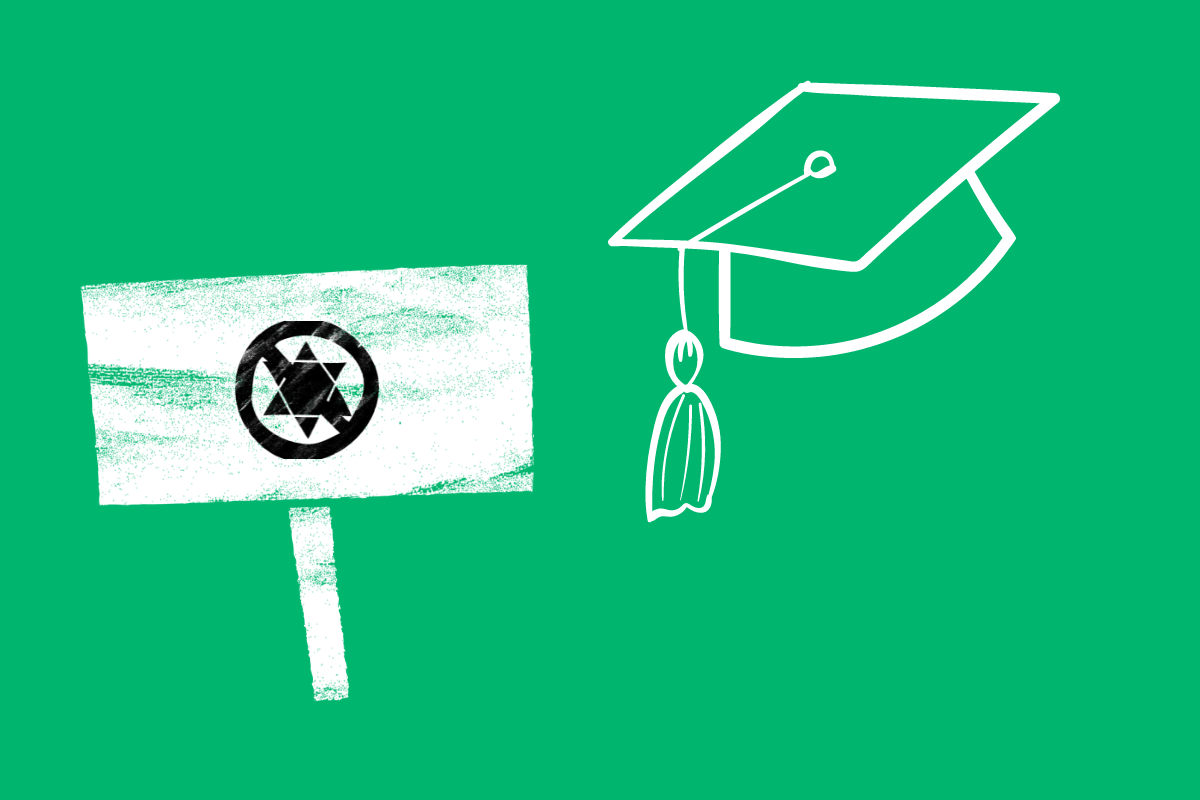Published: 23 April 2024
Last updated: 24 April 2024
I don’t recall ever having experienced antisemitism when I was at university in the 1990s. Not once. Even as an AUJS representative. I was never made to feel uncomfortable about my identity. Today, feeling uncomfortable is part of the ongoing reality for Jewish university students across Australia and globally.
When antisemitism and threats to Jewish staff and students depend on the context, it is indicative of a failure of the tertiary system to protect its own. The duty not to harm should override the duty to support academic freedom.
It was in response to October 7 and the rise in antisemitic incidences on campus and against the Israeli academy that the Australian Academic Alliance Against Antisemitism was formed. The group currently has over 260 members at 26 universities across Australia, with a vision for a tertiary sector where Jewish students and staff are free from antisemitism on campus, and where there are ongoing exchanges of knowledge, experiences and dialogue with the Israeli academy.
Steven Prawer, professor of physics at the University of Melbourne and co-chair of the alliance, recalled that “October 7 was my ‘Herzl’ moment when I realised that antisemitism indeed is a light sleeper and that unless we act with unity of purpose, organisational coordination and active diplomacy, we will see it grow on campus. The most important long-term weapon in our armoury is education and advocacy. The Gaza war will eventually end but the need for the alliance will continue into the foreseeable future”.
On campus, there is now a network of "alliance academic advisors" across Australian universities, whose roles are to advocate for zero tolerance of antisemitism and to support Jewish students and staff. Instances of academic bias against Israel in coursework are increasing and many academics feel free to make discriminatory statements against Jewish students in class or on social media.
A recent example of this is the express denial of any guarantee of “cultural safety” for anyone espousing a Zionist ideology, or the equating of Israeli actions in Gaza as the prototype of terrorism, with no mention of Hamas and its terrorist activities. Sadly, there are many more.
"The Gaza war will eventually end but the need for the alliance will continue into the foreseeable future."
Professor Steven Prawer, alliance co-chair
One of the group’s primary goals is to ensure the continuity of ongoing academic exchanges between Australian and Israeli universities. A long-term project will develop a comprehensive strategy that includes measures to enhance academic exchanges, ensure their smooth running and respond to anti-Israel incidences when they arise.
Recently, in collaboration with other Jewish bodies, the alliance led the response to ANZMHA conference organisers who, at the last minute, rescinded their invitation to Dr Moshe Farchi, a trauma specialist from Israel, citing their inability to “ensure the safety of conference participants”.
Through persistent effort, a public apology from the founding director of ANZMHA was made, with an assurance that this would not reoccur. This is a small but important step in defending against persistent efforts to “cancel” Israeli academics because of their Israeli citizenship.
"We will continue to be responsive to emerging issues, collect data across campuses and hold people accountable for antisemitic actions."
Associate Professor Efrat Eilam, alliance co-chair
The alliance also responds to antisemitic publications by academics through fact-checking and counterarguments in response to misinformation contained in grey literature such as the Overland letter published in October. Another longer-term goal is to better understand the experience of students and staff on campus.
Currently, there are a number of ways to forward details of complaints and incidents, but there is no unified approach leading to data which is fragmented and incomplete. To advocate both nationally and to individual institutions, a comprehensive approach to data collection regarding antisemitism across the tertiary sector needs to be undertaken, in collaboration with other community organisations. The alliance currently is conducting a survey for Jewish students and academics to share their experiences.
Once this evidence base is collated, the alliance will further advocate for the establishment for a National Taskforce on Antisemitism. This aligns with the recent University Accord’s announcement in relation to investing in a National Students Charter, National Students Ombudsman and a study into the prevalence and impact of racism across the tertiary education system, on campus and online.
The alliance’s co-chair, Associate Professor Efrat Eilam of Victoria University said “we are simultaneously reactive and proactive. We will continue to be responsive to emerging issues, collect data across campuses and hold people accountable for antisemitic actions. We will also continue working proactively in creating long-term impact through policy changes and developing university processes for addressing antisemitism”.
Anyone who has experienced antisemitism on campus and requires support can contact the alliance through its website.
RELATED STORY
The longer the war in Gaza goes on, the less safe Australians feel at home (SMH)
Community safety is viewed as under threat and ethnic tension as being on the rise after months of conflict in the Middle East, with 61 per cent of Australians saying the country is suffering from greater racism and religious intolerance.





Comments2
Jack Morris28 April at 10:40 pm
Diaspora Jews who speak with contempt about Israel’s current predicament need to realise what they doing. Israel needs support, not ambivalent Jews who are expressing antagonism toward Israel and helping our enemies.
Gavin Silbert24 April at 07:33 am
The appalling public relations by Israel following 7 October shows a complete contempt for diaspora Jewry and is responsible for an upsurge in antisemitism throughout the world. Israel, which has always expected support from world Jewry, has demonstrated that it is happy to treat world Jewry with complete contempt and cares not a wit for the consequences. It is time to reevaluate the relationship between Israel and Jews living in the diaspora.